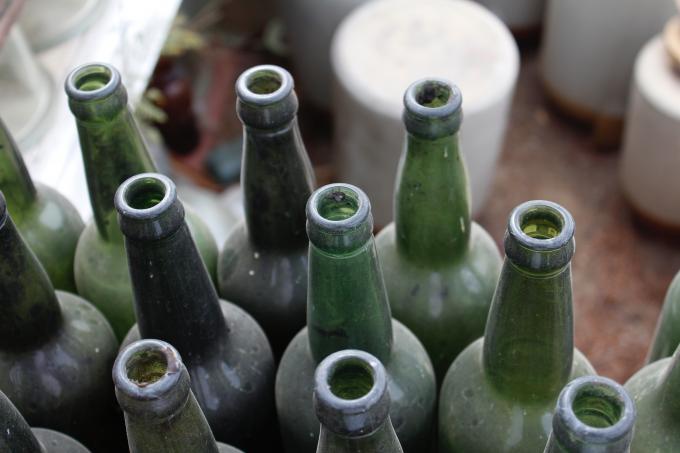
We are delighted to present Ajla Dizdarević's essay "A Drink to End All Drinks," nominated by instructor Katie Prout, as winner of the second annual David Hamilton Undergraduate Creative Writing Prize. This prize is sponsored by anonymous donors who wish to honor the mentorship and support they and other students at the University of Iowa received from Emeritus Professor of English David Hamilton. In addition to publication online, Dizdarević will be awarded a $500 scholarship.
The heart said to me, “They’ve insulted you, they’ve dragged you through shit. Go on and get drunk, Venichka, go on and get drunk as a skunk.” This is what my beautiful heart said.
—Venedikt Erofeev, “Moscow to the End of the Line”
My mother used to soak my socks in potent brandy, making sure they were drenched before pulling them over my cold feet, my frozen toes untouched by the fever setting fire to the rest of my body. Even through my stuffed nose, I could smell the strong, fruity rakija working to cool me down. “Better than Tylenol,” my mother would say knowingly before recorking the bottle and hiding it away in the basement. Years later, I’d creep downstairs barefoot, stopping in front of the shelf displaying my parents’ alcohol, face-to-face with a bottle of Bosnian medicine. The taste of it was atrocious, burning my throat the way the fever had years ago. But still, I drank.
They say when immigrants come to America, language is the first thing to go, food and drink being the last. Assimilate, assimilate, but let the children be real Bosnians by letting them drink. Let them have at least that.
Words that used to flow like the Drina now struggle to leave my mouth. I have to think before I speak, the conjugations failing to come to mind, my imperfect pronunciations embarrassing me, a forgotten word causing me to falter. It is more shameful to be an English speaker than a drunk in our households.
With every war, a culture dies. For us, it was the culture of staying sober for longer than a day. To survive the cruelty of the Ottomans, the ruthlessness of the Nazis, the betrayal of the Serbs, and still be here is nothing short of a miracle. We have endured; we are here. Red-faced and falling over ourselves with the smell of brew on our collars, but here nonetheless. Is our continual existence a testament to our resolve? Or evidence of how we’ve become the biggest joke in history, a species bumbling its way through every war, surviving by its own dumb luck, washing the taste of humiliation out its mouth with a little rakija?
Like cigarette smoke that has seeped into the walls, the war will never leave us.
It’s a tale as old as time: babo drinks to forget, sin drinks to remember, to feel something from before the war, from a homeland long gone and never known. Regret versus falsified nostalgia. Sorrow versus romanticism of something never experienced. Looking back to the past inside your heart to find some glimmer of hope for the future always beats not thinking about it at all. To make it sound any better or worse or any more complicated or simple would be a fabrication. Every Bosnian knows drenching a child’s socks in brandy brings down a fever. But does it heal a soul? Will it make something ugly sound like poetry? Can it bring a country back to life?
It ends as it always does, with the child of broken people filling up a cup held in his antsy hands, the liquor fermenting until he grows old enough to lift the cursed drink and take that first sip. Not a brew rich with sugar and cream, but a bitter drink, obscene in the way it sours a voice. Words from the Mo-ther-land stop at the roof of a dry mouth, but at least he has this. A clenched jaw, a hard gulp, and, as always, looking forward to nothing at the bottom of the glass.
